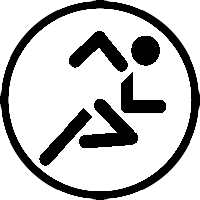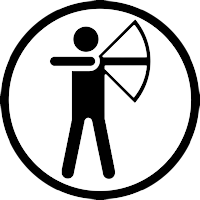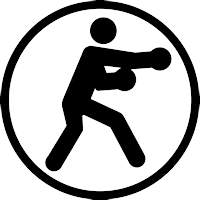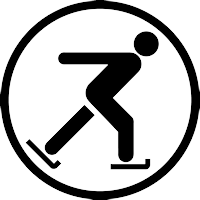Traveling to Toronto to Study Archery
I have had students who come from the USA and overseas (Saudi Arabia, China, South Korea, India, Brazil, the U.K., etc) who have come here expressly to study archery under my tutelage.
Now that doesn't mean that they don't have any archery instructors available locally (although in some places like Saudi Arabia they are admittedly difficult to find). It simply means that for whatever reasons, some of my archery students have decided that they wanted to travel to Toronto, Canada to study archery here rather than study locally.
In 2017 I taught a young man from Ohio who came here for two weeks and took a 10 lesson crash course in traditional archery. Why? Because he couldn't find any archery instructors in Ohio that he felt were professional / quality, and he wanted to improve his archery skills in a hurry. So he decided to visit Canada, found an Airbnb, and have a vacation wherein he explored Toronto for 2 weeks and had 10 archery lessons during that 2 week period. He liked it here so much he was tempted to find a job in Toronto and move here. (Partially to get away from the political nonsense in the USA.)
In 2014 I taught a young woman with aspirations towards joining the Saudi Arabia Olympic Team, and thus came to Toronto for 10 lessons in Olympic-style archery. Saudi Arabia has a number of problems with archery:
- The common person cannot even purchase archery equipment unless they are already on an archery team. Thus it makes sense to study archery overseas. (Catch-22 Situation)
- You cannot get an archery coach in Saudi Arabia unless you are on a team.
- Joining an archery team requires that the individual has already demonstrated that they have archery skill.
- Taking archery equipment on a plane is prohibited unless you can prove it is for training purposes only.
Seriously, they make it really difficult. So in order to pursue her archery goals, she needed to study overseas. And she would need to buy archery equipment overseas, practice, get better, and continue to pursue her dream. It isn't going to be easy.
And other students of course, some of whom may have had other reasons for visiting Toronto and deciding to get archery lessons while they are here.
 |
| Two of my happy archery students from November 2018. |
How many archery lessons should a person get?
Typically my "crash course" students take 5 to 10 lessons. The more the merrier. There is no limit.
Some of my regular students who live here in Toronto just keep coming back for more lessons year after year. Including one of my older students from the U.K. who visits Toronto every Spring and Autumn and has lessons during those times of year.
How much does 5 to 10 lessons costs?
For one-on-one lessons:
5 lessons is $270 CDN (weekdays only) or $405 CDN (weekends only).
10 lessons is $520 CDN (weekdays only) or $780 CDN (weekends only).
Often crash course students mix/match weekday/weekend lessons, so they might have 6 weekday lessons and 4 weekend lessons for a total of $624 CDN.
(With the current exchange rate $624 CDN is about $466 USD.) This combination of weekday and weekend lessons allows them to have lessons on a
Tuesday/Wednesday/Thursday + Saturday/Sunday schedule, with breaks on Mondays and Fridays so they can relax.
Also my availability often varies on the season and how booked up I am with other students, so precise scheduling can vary upon what is available.
Is there a lesson plan?
Yes, I have multiple lesson plans.
There is the
Standard Archery Lesson Plan (for traditional recurve), the
Horse Archery Lesson Plan, and the
Olympic Archery Lesson Plan.
If an archer is more experienced or has specific goals in mind, I can also adjust and tailor a lesson plan to suit the student's needs.
So for example I have yet to have a student ask to focus on longbow archery for 10 lessons, in which case I would simply modify the Standard Lesson Plan to suit their needs.
With compound archers their needs often vary on their goals so I routinely design an unique lesson plan for each compound archer that suits their individual needs.
Tips for Taking an Archery Crash Course
#1. Eat Healthy - You are going to be exercising for 90 minutes almost every day, so having a healthy diet is certainly beneficial. Lots of veggies and protein.
#2. Sleep Well - Avoid staying up late doing activities. Try to be well rested and alert the day of lessons. eg. Going out to a party, drinking and being tired/hungover the next day would be a bad idea.
#3. Pack a Lunch - Bring food, snacks, drinks to every lesson should hunger or thirst strike you. Having a hot or cold drink is very handy during the colder / hotter times of year.
#4. Archery Gear - If you have your own archery equipment and are bringing it with you, you should make certain it is okay to bring it on any international flights to Canada. You also don't want to forget anything you might need, so when in doubt
BRING EVERYTHING you think you might need and pack it well in advance. You don't want to arrive in Toronto and discover you forgot your favourite tab or shooting glove or thumbring.
#5. Familiarize yourself with Toronto Weather - Depending on the time of year it is either really hot or very cold and you should prepare yourself by bringing or purchasing appropriate clothing.
Note - In 2019 I am going to try to not schedule lessons during the hottest weeks of the year and instead take a vacation at that time. The last two weeks of July are two of the hottest weeks of the year, so that sounds like a good time for a vacation.
#6. Be Prepared to Learn a Lot - My Japanese professor in university told us that the average human only learns and remembers 10 new things in a day, and thus a person learning a language can only be expected to learn and retain 10 new words each day. Over the course of 10 lessons, you will be expected to learn way more than 100 things. Thus you should expect to learn a lot, you should expect to learn some things you weren't expecting to learn, and it can feel a bit overwhelming at first.
Fortunately for you I explain things in terms of the physics of what is happening, and I often employ narrative storytelling, jokes, and "Archery Sayings" into my teaching methodology which helps students to remember. I even recently published an article in Archery Focus Magazine about using narrative storytelling as a teaching tool.
What are my credentials?
- I have been doing archery since April 1989. So almost 30 years, since the age of 10.
- When I was a teenager in the 1990s I routinely made my own bows, arrows, and crossbows.
- I studied Olympic-style archery formally in South Korea, at Jeonbukdaehakkyo (Jeonbuk University).
- I started teaching archery in 2009.
- I practice and teach all 5 major styles of archery - Traditional Recurve, Olympic Recurve, Longbow, Shortbow/Horsebow, and Compound.
- I still make longbows and crossbows as a hobby.
- I collect antique and vintage bows from the 1940s, 50s, 60s and 70s. I would like to get some older bows.
- My personal collection of bows is *currently* 34. I create, buy and sell bows every year, so the number fluctuates.
- I have published 3 articles so far in Archery Focus Magazine. More to come!
- I have published a book of poetry about Zen Archery: "Dreaming of Zen Archery".
- I am currently working on an archery "how to" book and also a book of archery sayings/photography.
- I have been on CBC News, CTV, CityNews, TSN, OLN, CBC Radio (twice) and various other television and radio broadcasts.
- I have both won archery competitions and judged archery competitions.
- I taught my wife archery, and in 2019 I expect my 2-year-old son will begin archery. Five members of my extended family also do archery, including my cousin who was North American Champion for Traditional Recurve Target Archery in 1990 and 1991, and Traditional Recurve Field Archery Champion in 1991. So archery is a family sport for myself and my relatives.
- Teaching archery is not a hobby for me. It is my full time occupation. I live and breathe this sport.
 |
| The archery instructor on February 23rd 2017. A warm day in February. |
Is it possible to get archery lessons during the winter? Are they indoors?
Yes, it is possible, and it is outdoors. I am a firm believer in practicing outdoors and learning how to adjust for weather conditions. Even if it is very cold. However since this is Toronto, one of most southern Canadian cities, it often isn't even that cold here and the snow melts easily.
However I do have a rule with winter archery. It must be -5
℃ or warmer. Any colder than that and the combination of the extreme cold and the windchill is going to make it feel like it is -20 or colder, and it is both bad for the archer to be doing archery in such conditions, but also potentially bad for your archery equipment.
Thus for the sake of your equipment and mine, -5 or warmer is the rule.
Also I don't recommend using vintage archery equipment when it is too cold, too hot or too humid, as the heat/cold/humidity can be much more harmful to older vintage equipment. Aim for moderate temperatures when using any kind of vintage archery equipment. So while I do sometimes bring some of my "museum pieces" to the range to show students / shoot them, I only do that when the weather is appropriate.
The bow in the photo above is a 1949 Bear Grizzly Static Recurve, and it was so warm that day in February I decided it was safe to bring it.
What else is there to do in Toronto?
There are many tourism websites and things to do in or near Toronto. You will not be bored in this city which has a plethora of historical sites, art galleries, museums, restaurants, and cultural districts (eg. Chinatown, Little Korea, Little Italy, etc), world class beaches, sailboats, etc.
You could potentially also take day trips to Niagara Falls, Hamilton (which also has many waterfalls), Guelph, Kitchener, Elora Gorge, Barrie and various locales within a short drive / train ride of Toronto. Depending on your interests you could be exploring outdoors, going to historical sites, getting winery tours, etc. If you have specific interests I can even recommend places my wife and I have gone.
Some of archery students have also taken horseback riding lessons, so if that is your goal you could in theory do both. Study archery and horseback riding at the same time. After ten lessons of both you should be able to handle yourself on a horse and be able to shoot with a degree of experience and confidence. The
Horse Archery Lesson Plan page contains a list of horse riding locations in / near Toronto if you want to browse and compare prices.
Update - One of my former students recommends
Wind Spirit Stable, which is about a 90 minute drive north of Toronto.
Personal Note - It is my long term goal to open a horse riding school / private archery range. It is on my To Do List. It is just a matter of time.































